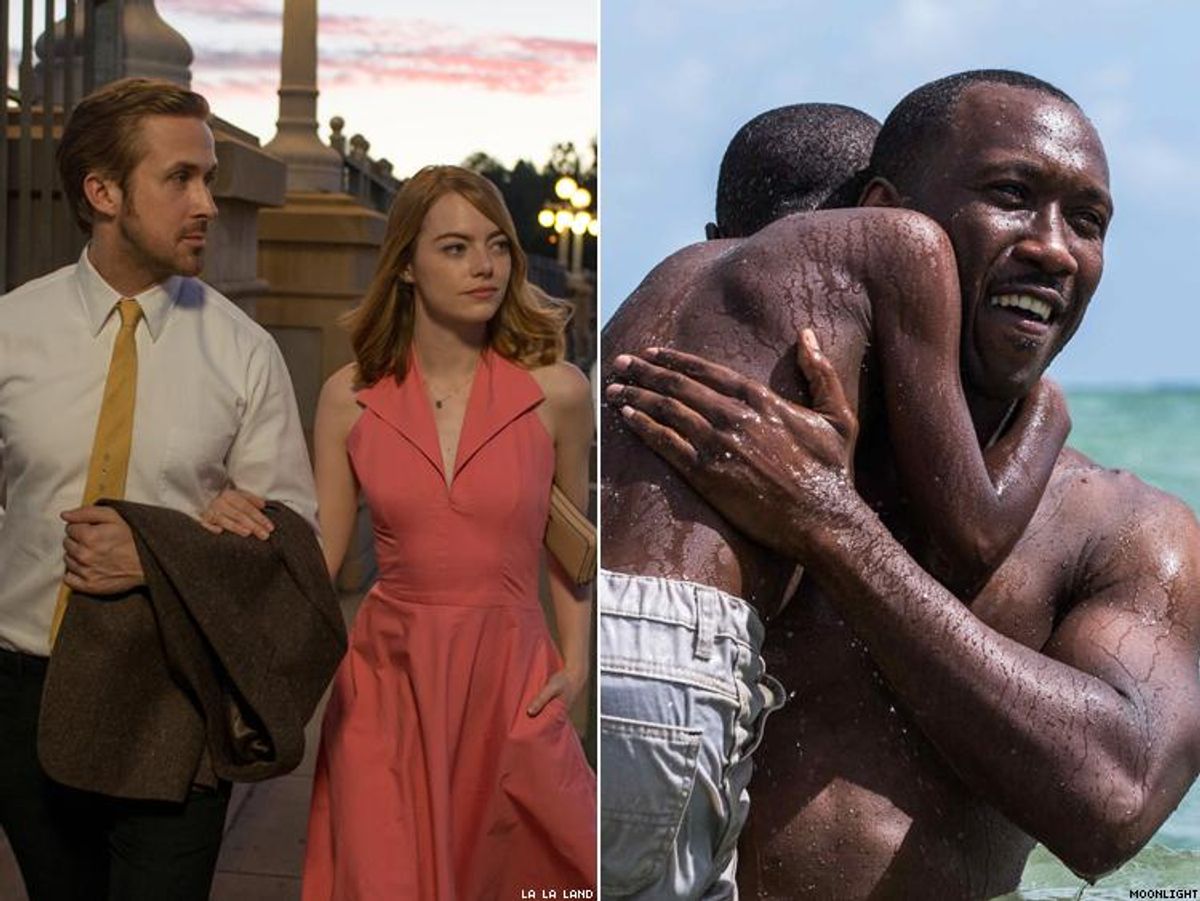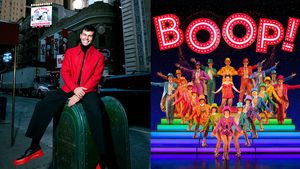At the Academy Awards, a brilliant gay movie is nominated for Best Picture. A film set in Los Angeles is as well. Ultimately, the Oscar goes to ... the film about Los Angeles.
No, this is not a future report from this year's Oscars. It is an account of the past. In 2006, Brokeback Mountain, the artful film by Ang Lee about ranchmen in love, lost to Crash, a star-studded production that tackled important issues like xenophobia and racism, yet lacked the artistic merits of its competitor.
The loss was felt deeply in the gay community, because Brokeback Mountain was more than a movie. It was historic representation for a group that has been erased for time immemorial. Its Oscar snub was yet another reminder that the gay glass ceiling was not shattered, and even the best portrayals of our love were no match for the Hollywood machine.
That machine is still turning, and more than a decade later, the past could very well repeat itself. This year, another LGBT film has made history: Moonlight, which is the first picture about the life of a black gay man to be nominated by the Academy of Motion Picture Arts and Sciences for Best Picture. The strongest contender for this award is La La Land, a musical love letter to Los Angeles starring Ryan Gosling and Emma Stone.
History tells us that the cards are stacked against Moonlight. Hollywood, like any preening actor, loves a mirror. Particularly in recent years, films that tackle Tinseltown tend to triumph at its biggest night. In fact, since 2011, three of the six winners of Best Picture have focused on the entertainment industry and its players: The Artist (2011), Argo (2012), and Birdman (2014). Will La La Land be the latest?
This is not to say that La La Land -- or any of these other films -- are without merit. Directed by Damien Chazelle (Whiplash), the movie is a beautiful homage to the musicals of yesteryear that also tells its own modern love story. It's bright, whimsical, escapist fare in a time when many desperately feel that they need an escape. It's not exactly fluff either; the film, for all its music and light, addresses the existential choice between love and art as well as the regrets all must face when taking the road less traveled.
However, Moonlight is arguably worthier of consideration for Best Picture, and for the very opposite reason: It faces reality and forces the viewer to confront the troubles faced by a protagonist who may not look like them. Its portrait of a black gay life is searing, illuminating, and vital, and it lingers long after the projector dims. Its themes of homophobia, racism, and poverty are still so important to recognize in our current political clime, in which government websites formerly devoted to our causes are being erased daily.
In another year and time, I might have championed La La Land. Unfortunately, it is impossible to evaluate art in a vacuum. The presidential election of Donald Trump -- a monster the entertainment industry helped create -- has forced Hollywood to view its power and possibility through a new lens. Meryl Streep spoke to a newfound urgency at the Golden Globes, where she dedicated the acceptance speech for her lifetime achievement award to speaking out against injustice.
"We have to remind each other of the privilege and the responsibility of the act of empathy," said Streep, who stressed what a transcendent performance and film can achieve. "We should all be very proud of the work Hollywood honors here tonight."
To review the other Best Picture nominees is to see acts of empathy. Lion, for immigrants. Hidden Figures and Fences, for women and people of color. Hell or High Water and Manchester by the Sea, for those who were failed by the American Dream. A win for any of these films is also to give a spotlight to the cause it champions.
The choice then comes down not to La La Land versus Moonlight. It is a choice between escape and reality, fantasy and fact, decisions that will speak to what Hollywood is and wants to be in an era when art itself is at risk. Unfortunately, we are now living in a world where facts are threatened, as are the lives of our most vulnerable people.
Now is not the time to open the escape hatch. Now is the time to resist oppression. Now is the time to let empathy, not vanity, be our guiding light. Now is the time to show Trump that Hollywood is not an industry populated with insular, coastal elites, but rather individuals capable of seeing pain and joy beyond Santa Monica Boulevard.
So please, Hollywood: Don't do to Moonlight what you did to Brokeback Mountain. Honor it with Best Picture. This is not mere tokenism. In art, soul, and importance, Moonlight shines. As a benefit, the win will also send that message to black people, to queer people, and yes, to President Trump, that our lives matter too.
DANIEL REYNOLDS is an editor at The Advocate. Follow him on Twitter @dnlreynolds.













































































